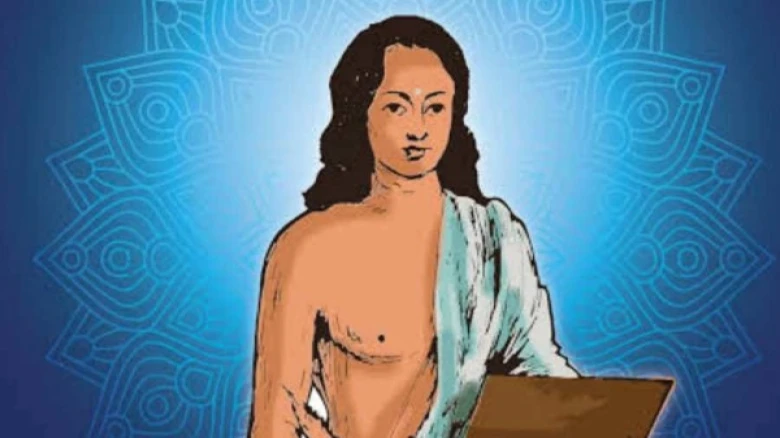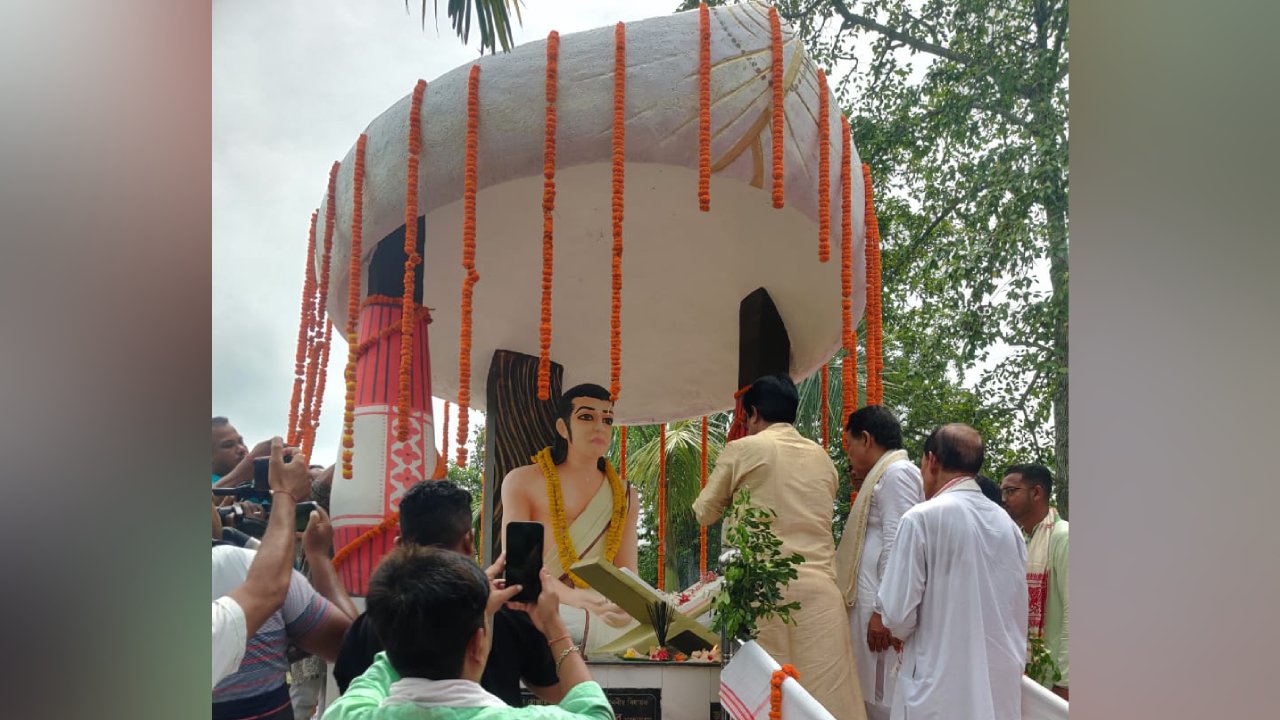I have used a simple literal translation method, says translator Sanjib Kumar Borkakoti
NEW DELHI, Oct 22: Namghosha, a scripture of prayer hymns for Vaishnavite devotees in Assam, has now been translated into English.
“Namghosha: The Oriental Gem” by Sanjib Kumar Borkakoti is the English version of Madhavdev’s “Namghosha”.
The necessity of presenting “Namghosha” to the non-Assamese people propelled Borkakoti to write down the simple meanings of the “Namghosha” verses in English, so that people can get acquainted with this great scripture.
Madhavdev (1489-1596 AD) was an associate as well as disciple of Srimanta Sankardev. Born at Narayanpur in Assam, he was an erudite scholar who dedicated his entire life to serving his preceptor.
He helped Srimanta Sankardev to propagate the newly launched Vaishnavite order Eka Sarana Nama Dharma. This order preached devotion to a single god, Lord Krishna.
Srimanta Sankardev asked Madhavdev to author a book elucidating the theories of Eka Sarana Nama Dharma, which would also serve as a book of prayer hymns for the devotees. So Madhavdev authored “Namaghosha”.
His “Namaghosha” and “Bhakti-ratnawali” occupy important place in the Eka Sarana Nama Dharma literature along with the “Kirtana-ghosha” and the Assamese rendering of the tenth canto of Bhagavata by Srimanta Sankardev.
Devotees sing verses from “Namaghosha” in their daily prayers.
Borkakoti, an academician engaged in Sankaradeva study, says he has not attempted a “poetic transcreation” of Namghosha as it would have been a very laborious task. The prose meaning would suffice to convey the philosophical depth of Madhavdev, he adds.
“I have used a simple literal translation method for rendering the verses here. But sometimes I have converted a verse from interrogative sense to assertive sense,” he says.
According to the author, Acharya Vinoba Bhave was highly impressed by “Namghosha” and he authored a book “Namghosha Sar” (Essence of Namghosha). He said Namghosha was a work of devotion and prayer.
The book has been brought out by Motilal Banarsidass Publishing House.
Borkakoti says community prayer is a distinctive characteristic of Eka Sarana Nama Dharma and “Namghosha” comprises verses meant for such prayers.
“The saint advised his disciples to sing and listen to the name and attributes of god. Invariably these singing had to be done in verse, not prose,” he writes in the book.
The author says “Namghosha” has withstood the test of time and continues to remain popular even four centuries after it was composed.
“It occupies a place of pride in Assamese society and literature. The literary beauty of these verses is simply incomparable,” he writes. (PTI)







